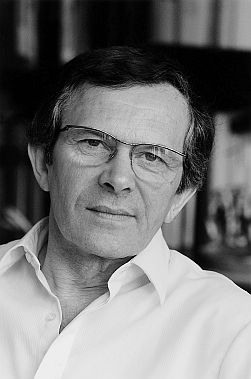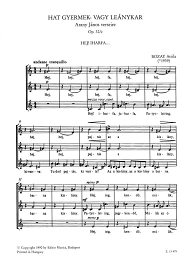The journey of musical works from author to performer
The task of the music publisher is to put manuscripts (be they paper or computerised) into a form that is legible, inspiring, and easy to use for performers; and to ensure the promotion, distribution, and legal use of the works.
With 75 years of experience behind us, we do this honourable work with consideration, commitment, and enthusiasm.
We thank the composers and music teachers who entrust their works to us.
Bozay, Attila

Biography
He was born at Balatonfűzfő on 11 August, 1939. He studied composition with Ferenc Farkas at the Ferenc Liszt Academy of Music in Budapest, graduating in 1962. In 1962–63 he taught music theory at the Conservatory in Szeged; between 1963 and 1966 he was a music producer with Hungarian Radio. In 1967 he studied in Paris on a UNESCO scholarship, then worked as a free-lance composer. From 1979 until his death, he taught composition at the Ferenc Liszt Academy of Music in Budapest. Between 1990 and 1993 he was also the managing director of the Hungarian National Philharmonia. Besides his two operas his oeuvre consisted mainly of choral music, symphonic works and solo instrumental and chamber music. In his opera Csongor and Tünde (1979–84), based on a play by Mihály Vörösmarty, he worked out the ten-tone system that he was to use consistently for the rest of his life. His works were performed at numerous international festivals (ISCM festivals in Prague and London, the Holland Festival, the Warsaw Autumn, the Contemporary Music Festival in Witten, the Zagreb Biennale and the Musikprotokoll, Graz). He frequently took part as a zither or recorder player in performances of his own compositions. He died on 14 September 1999, in Gönc (north-east Hungary).
His prizes and awards
 Deutsch
Deutsch English
English Français
Français Magyar
Magyar Polski
Polski Română
Română Slovenský
Slovenský Slovenščina
Slovenščina 中文
中文




























